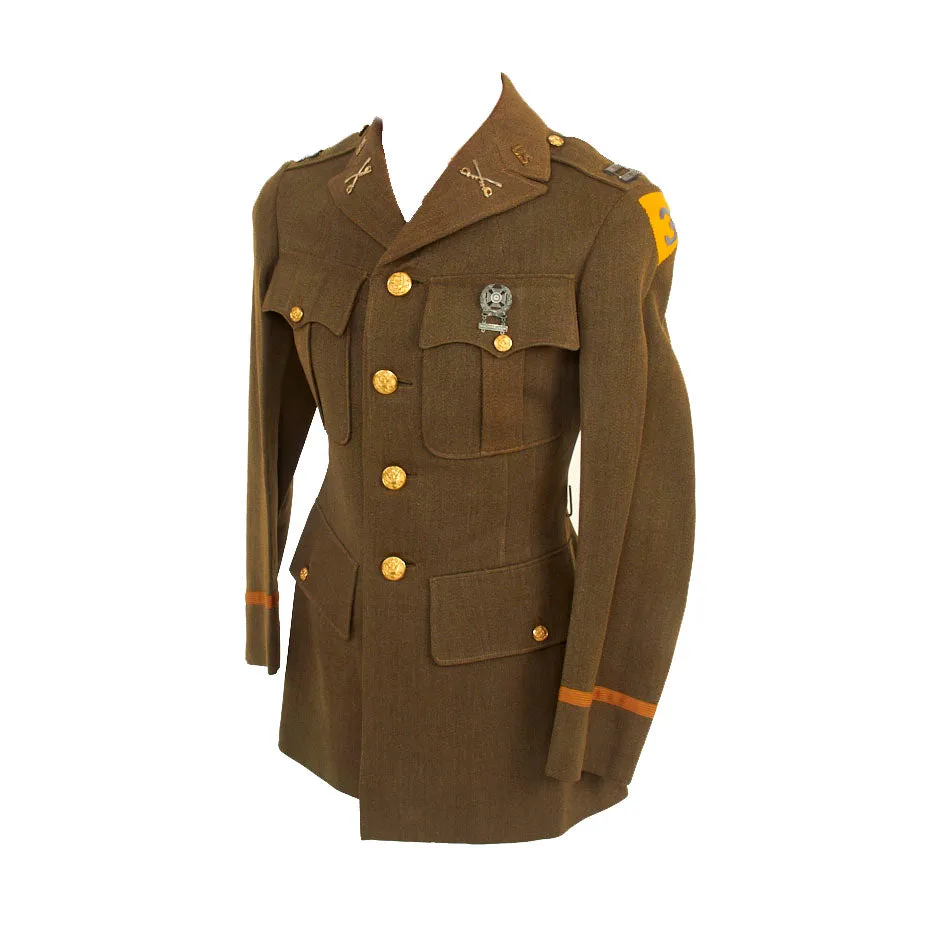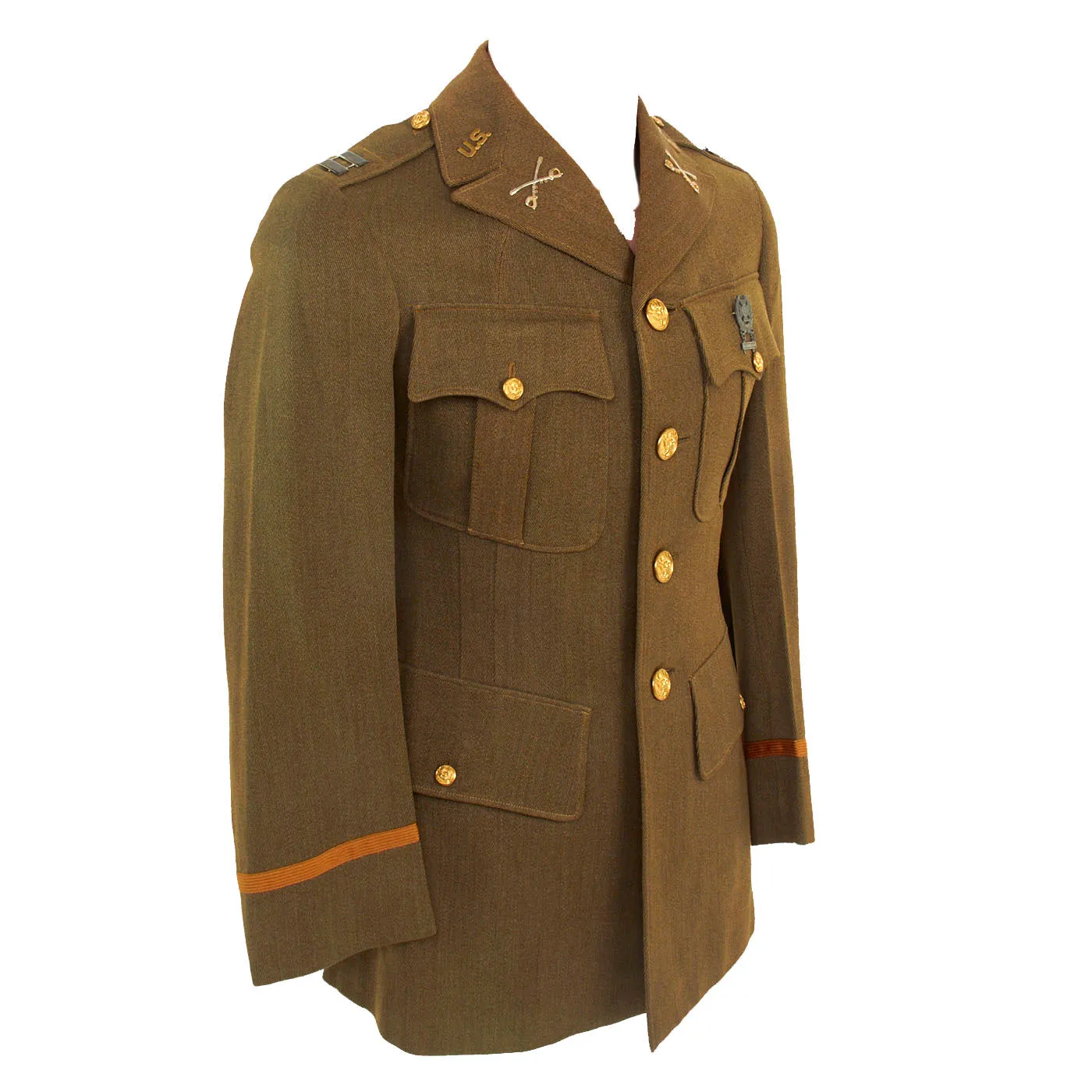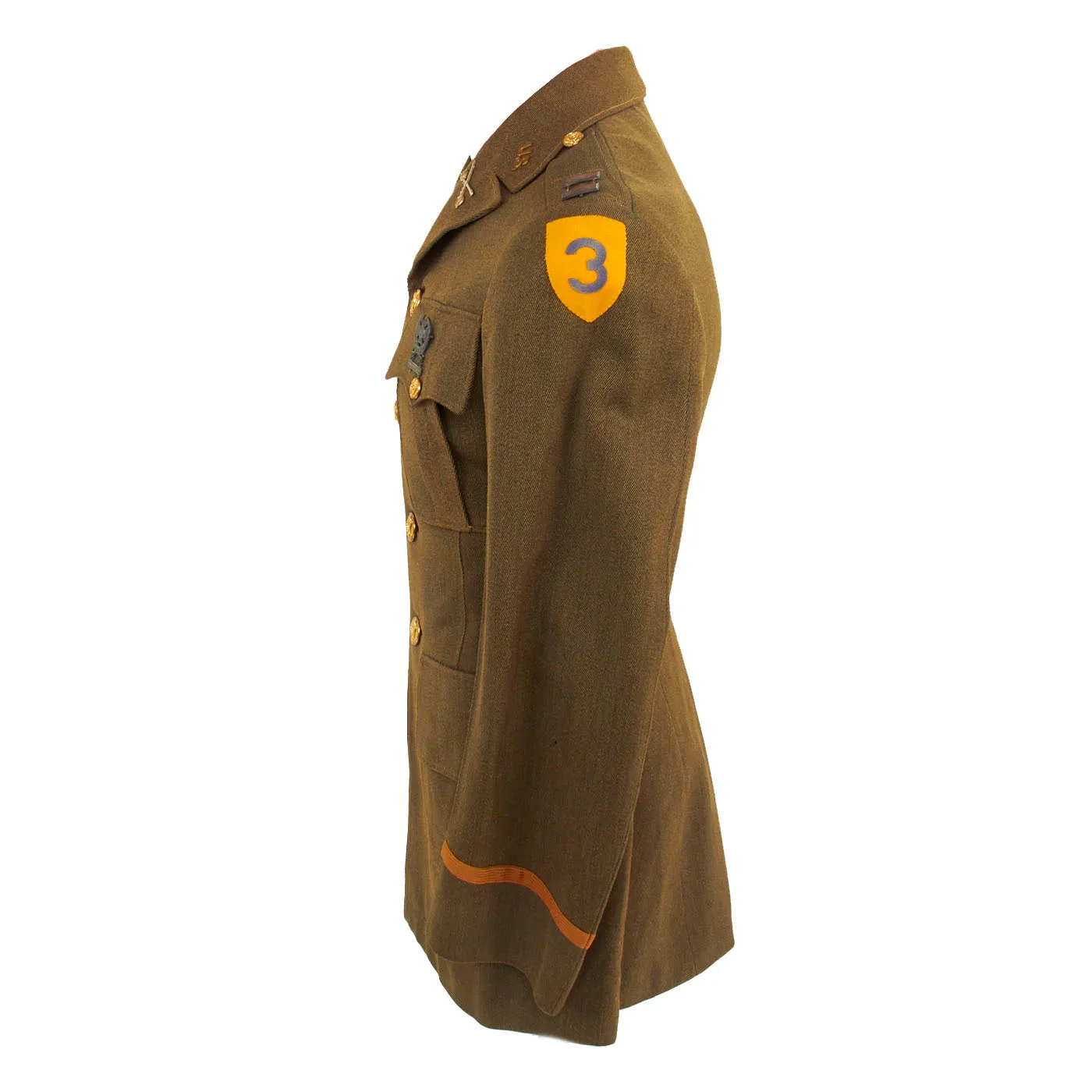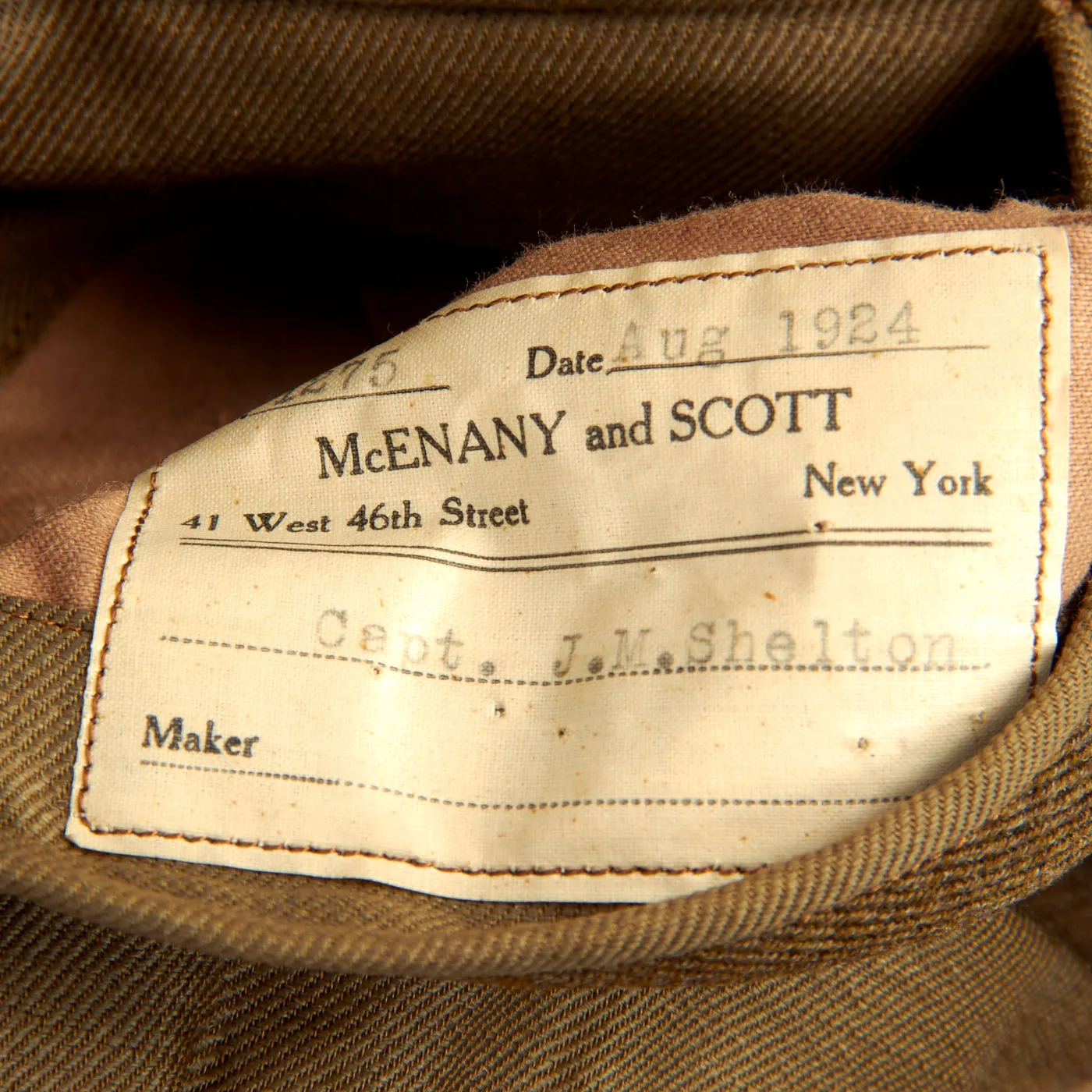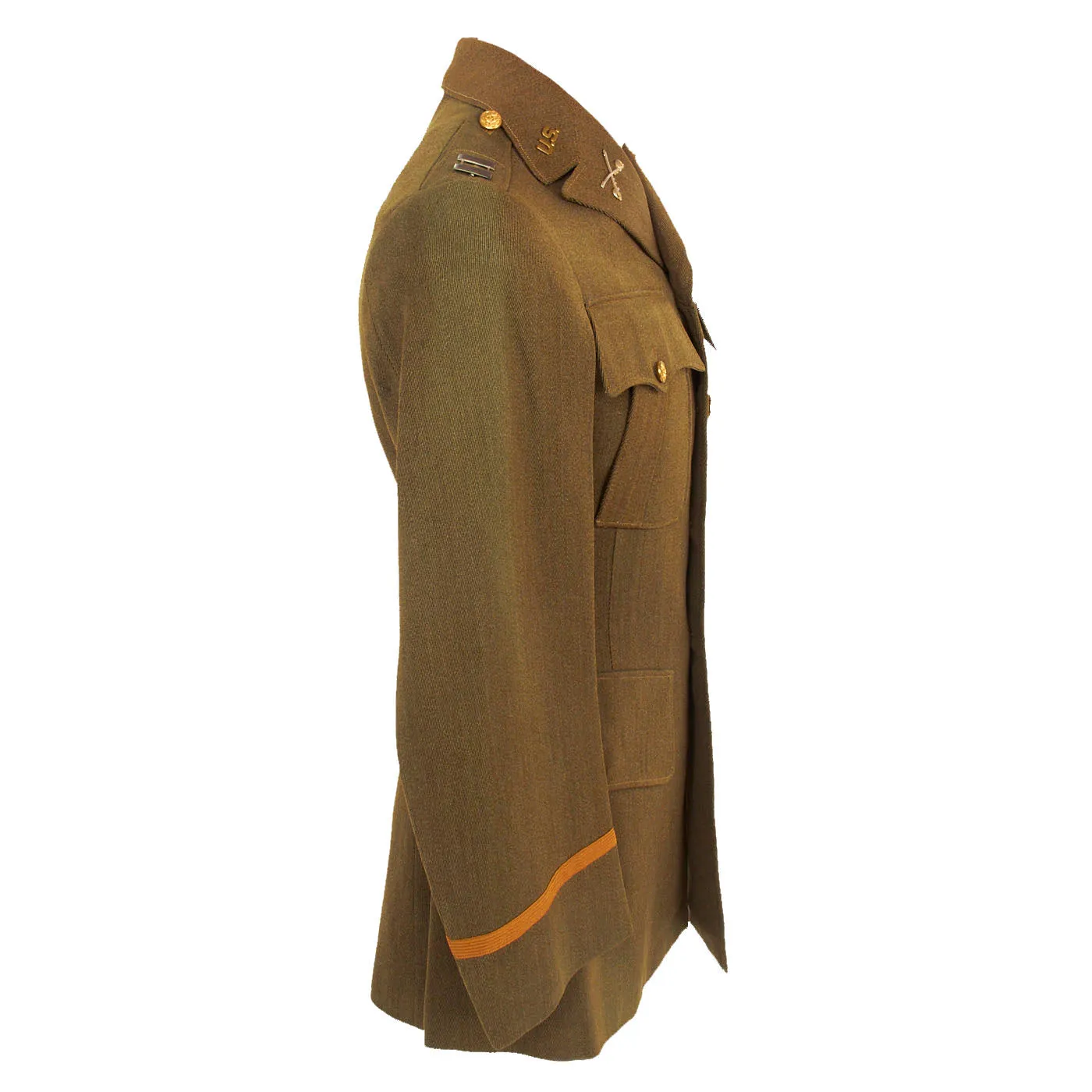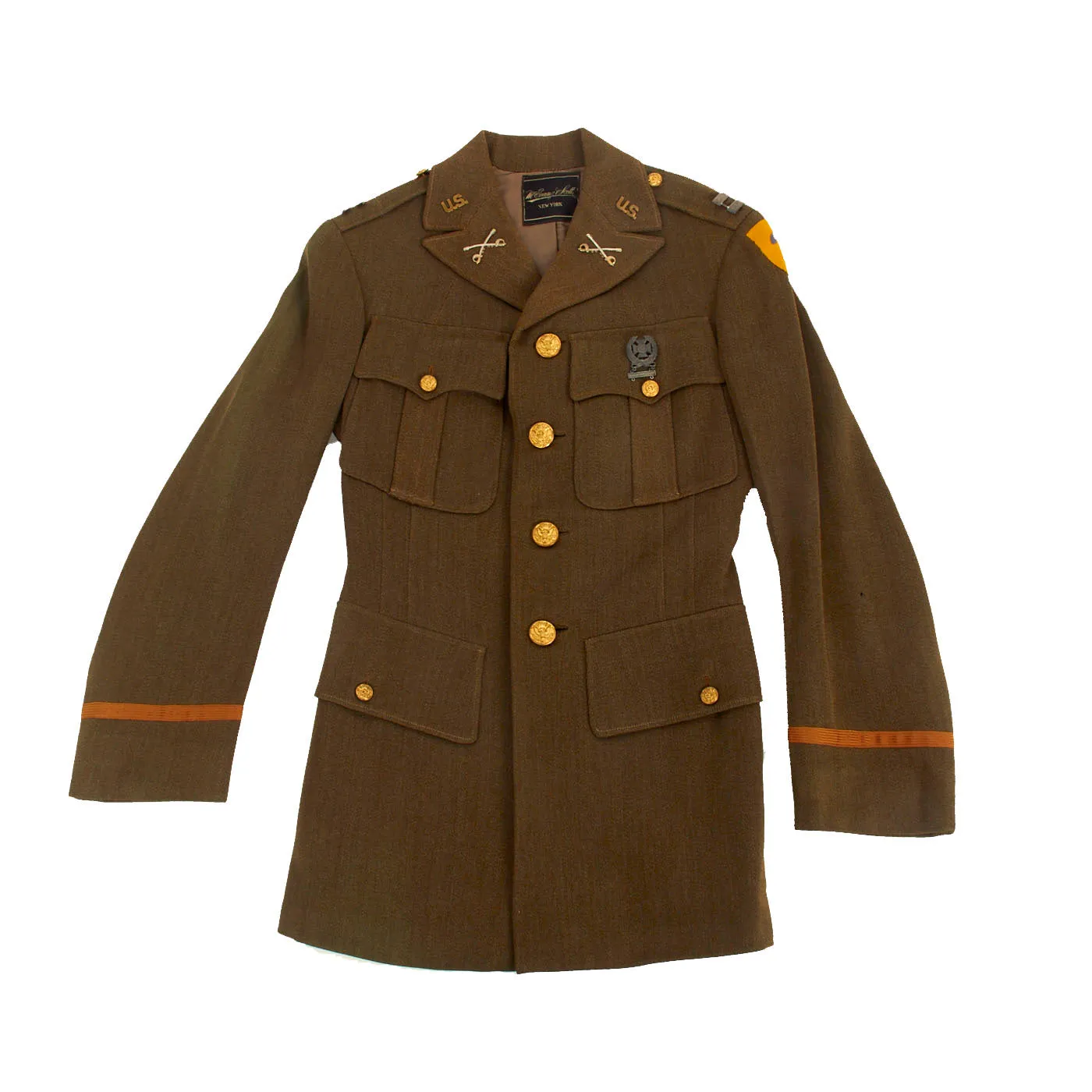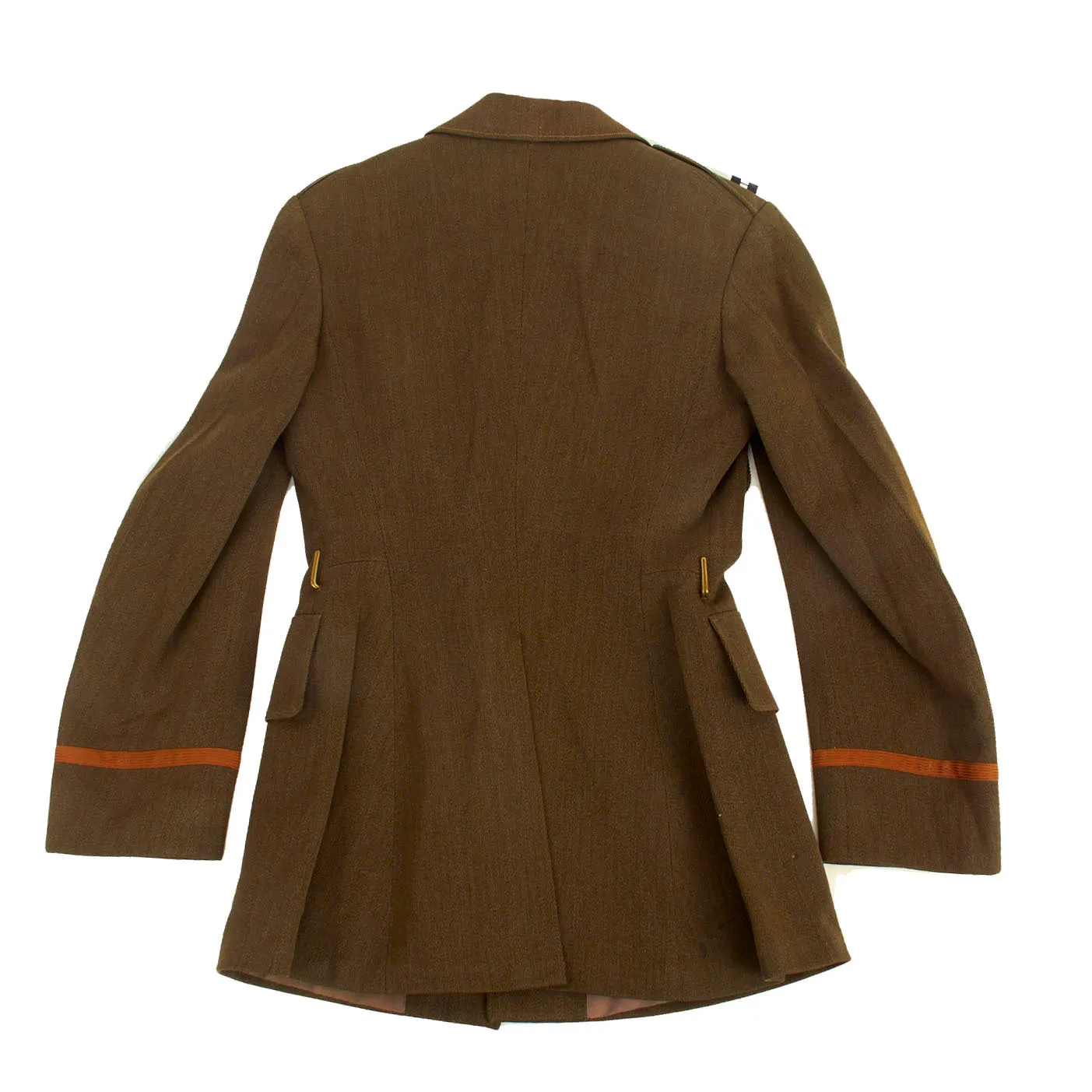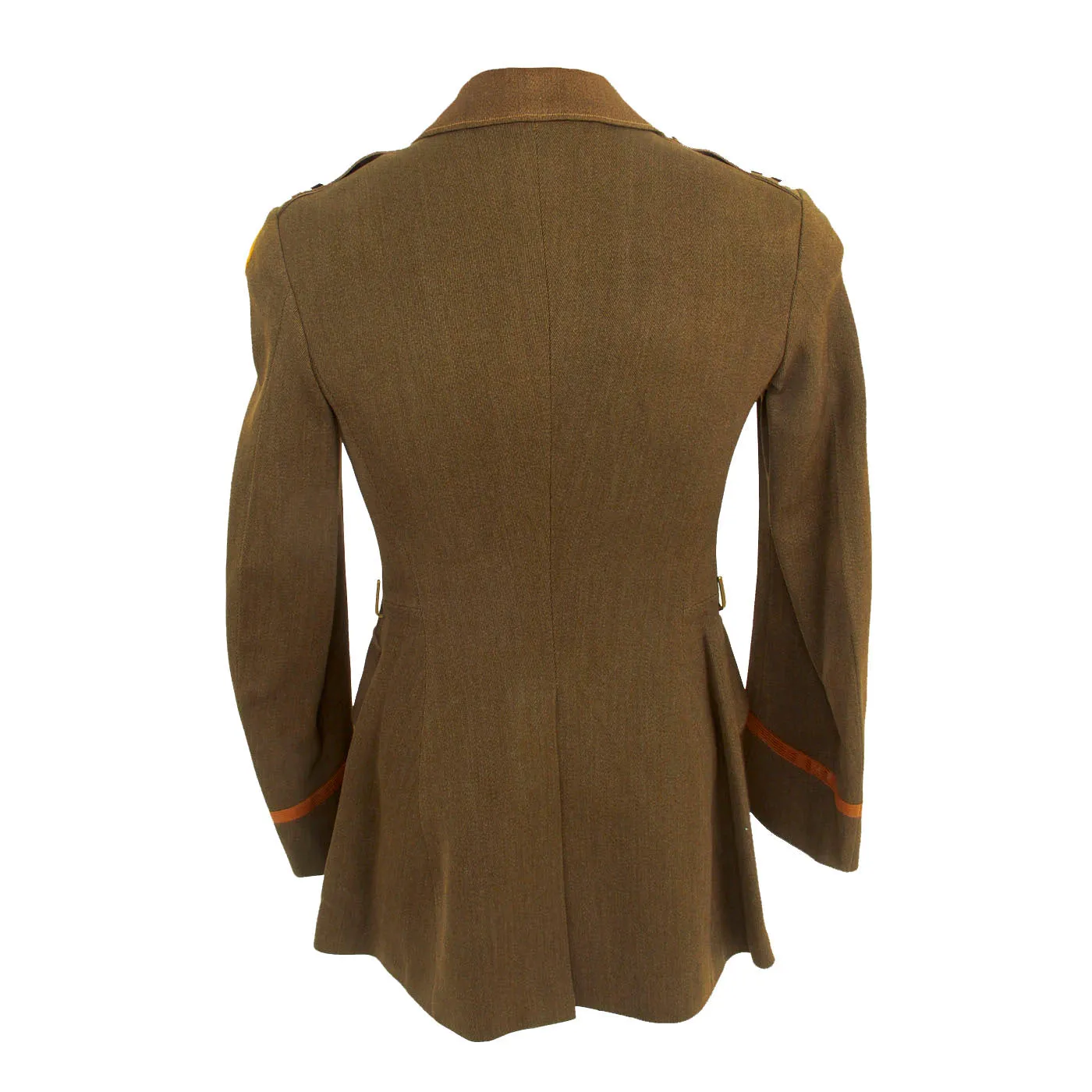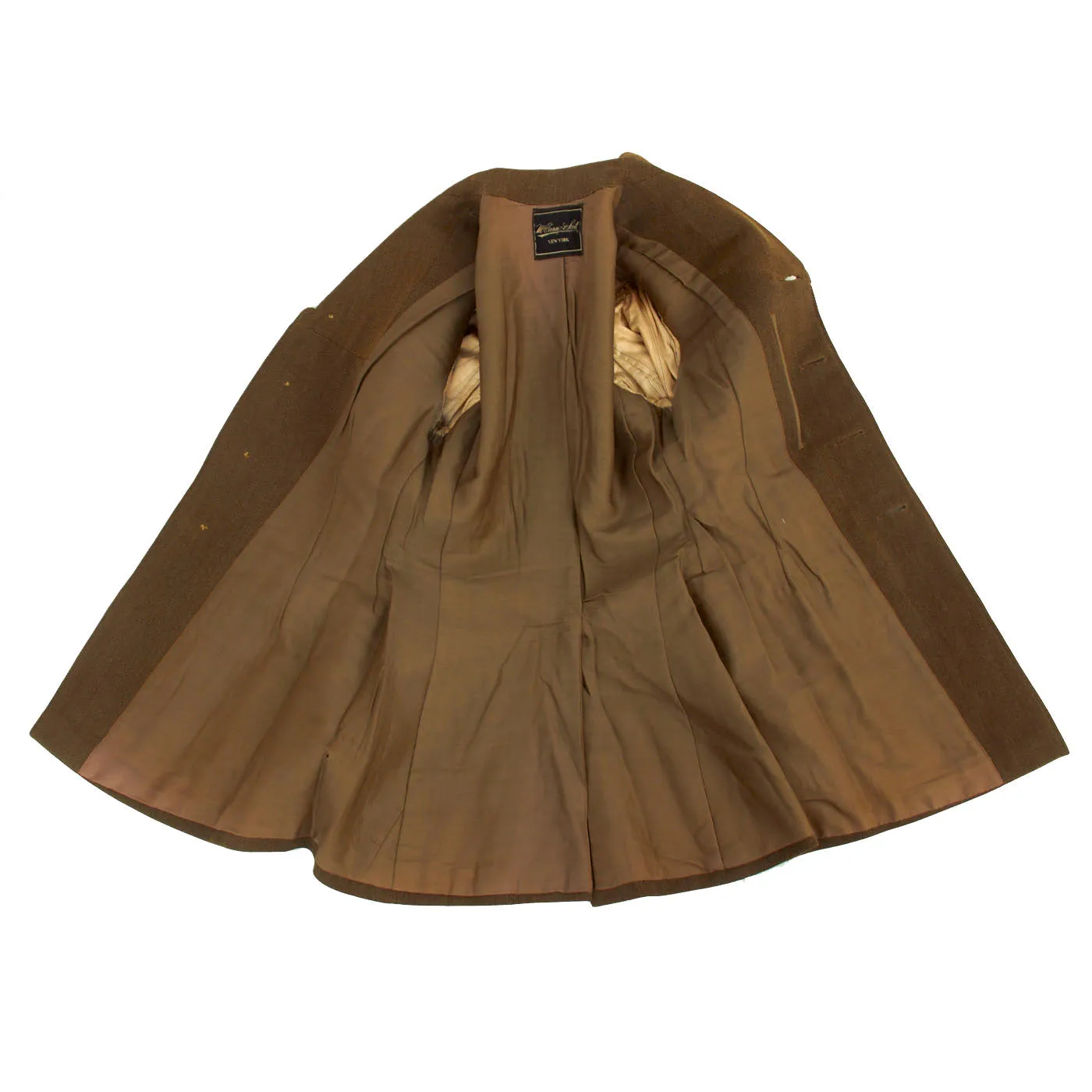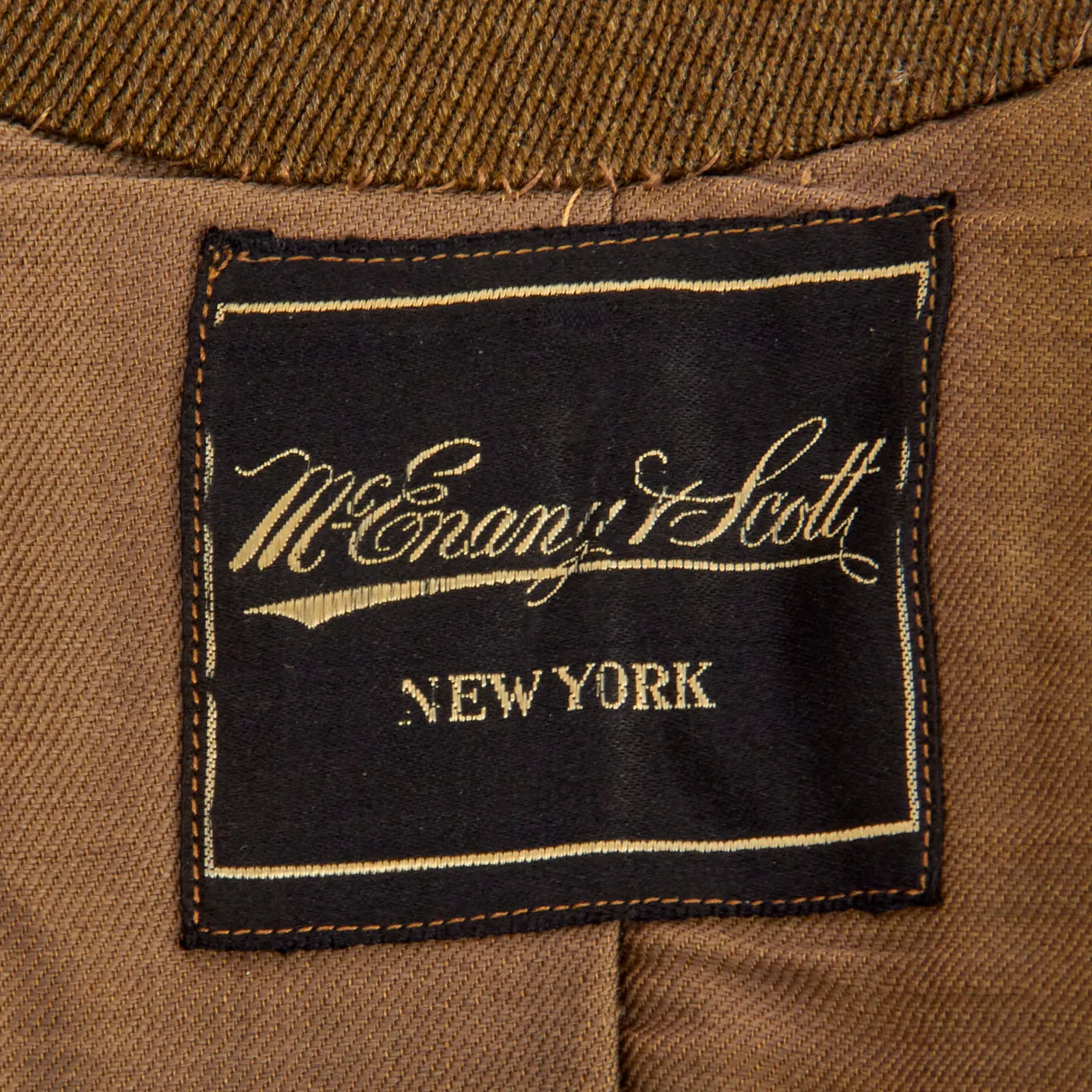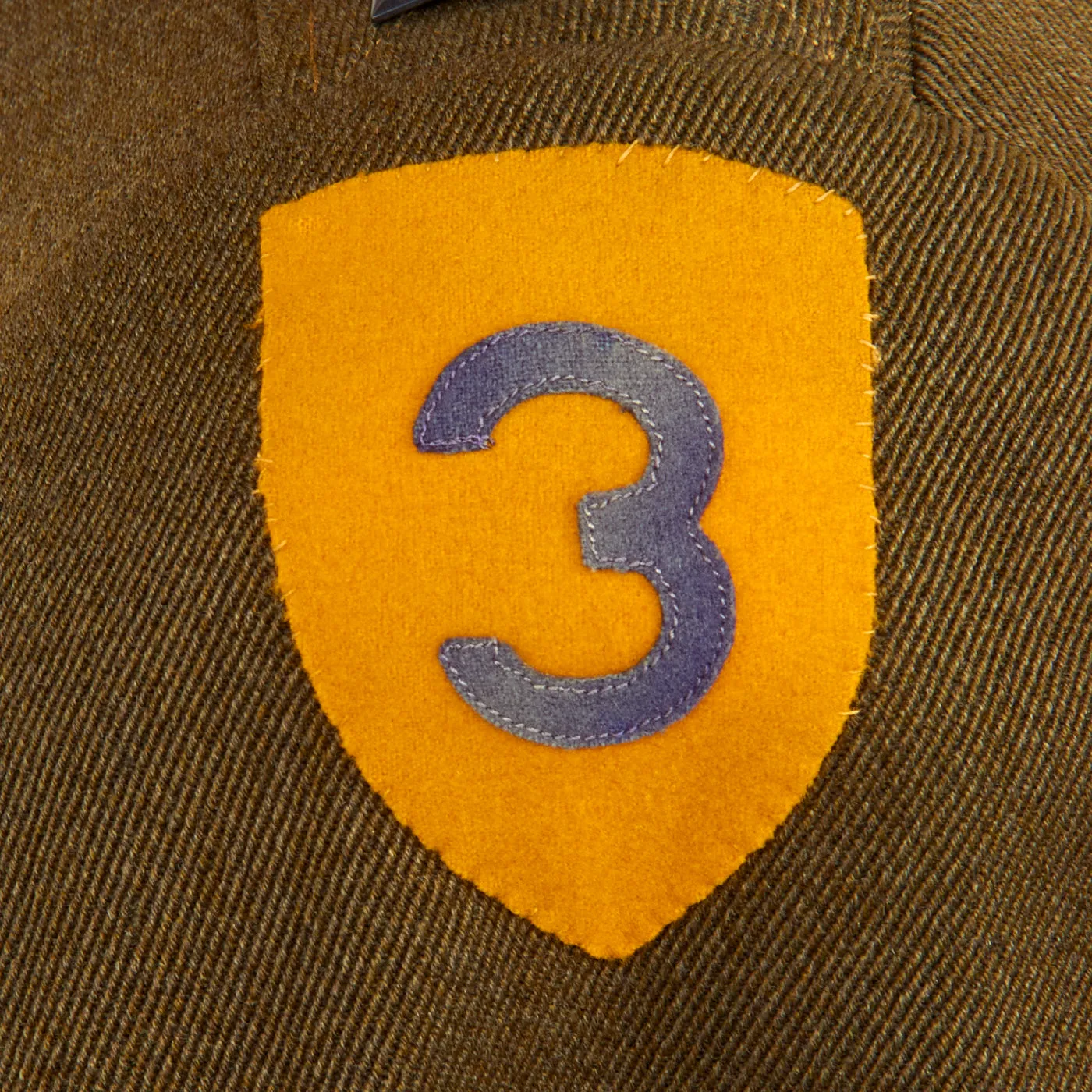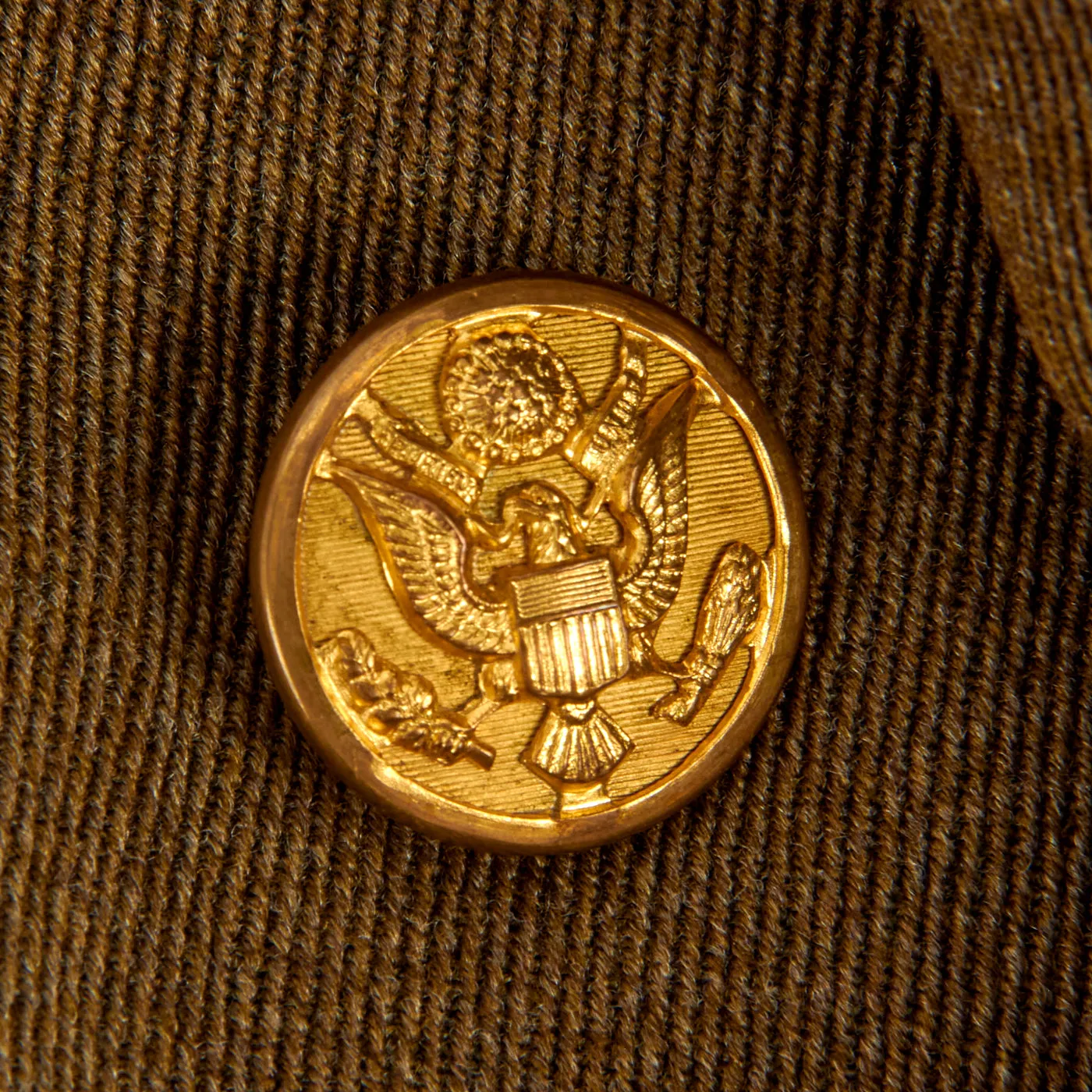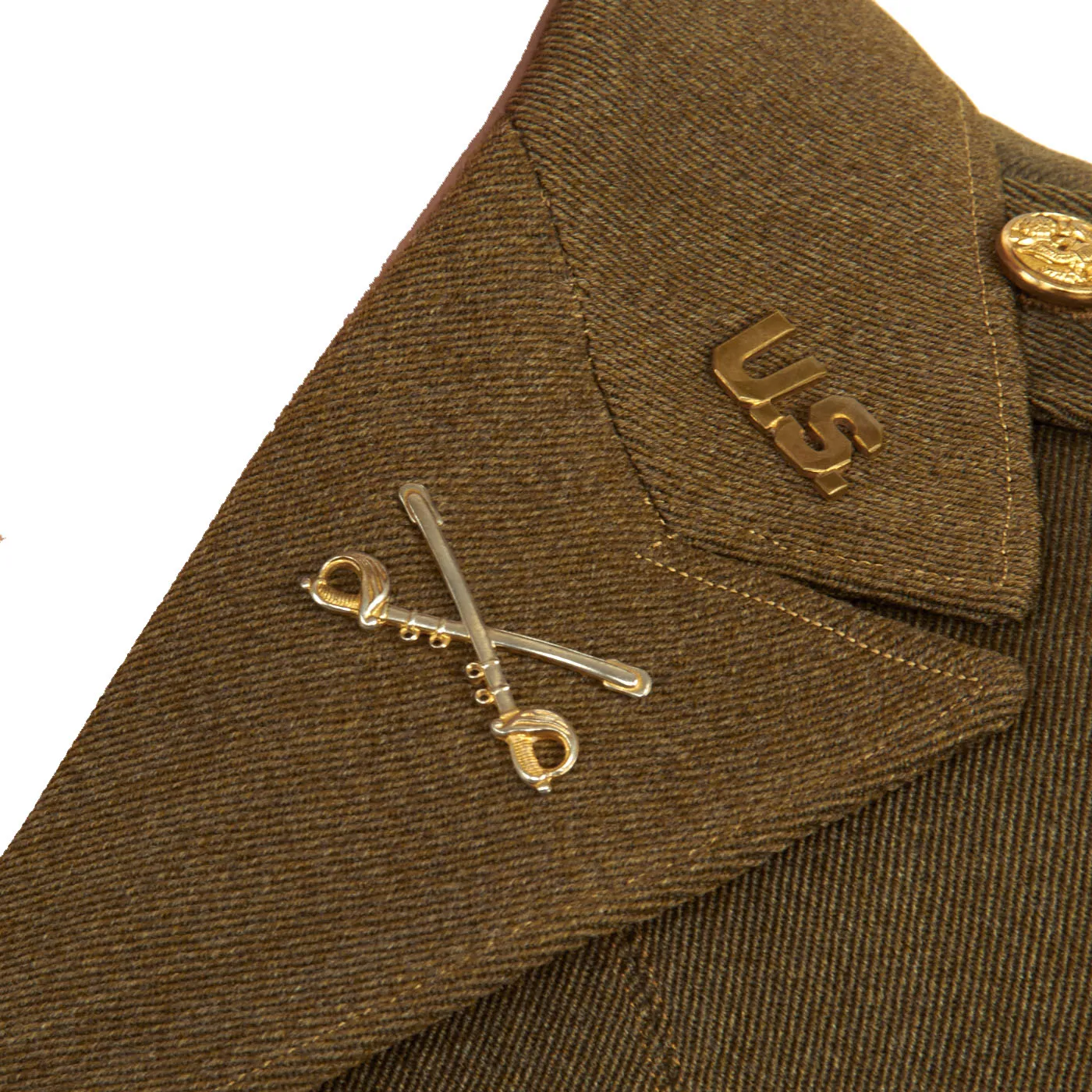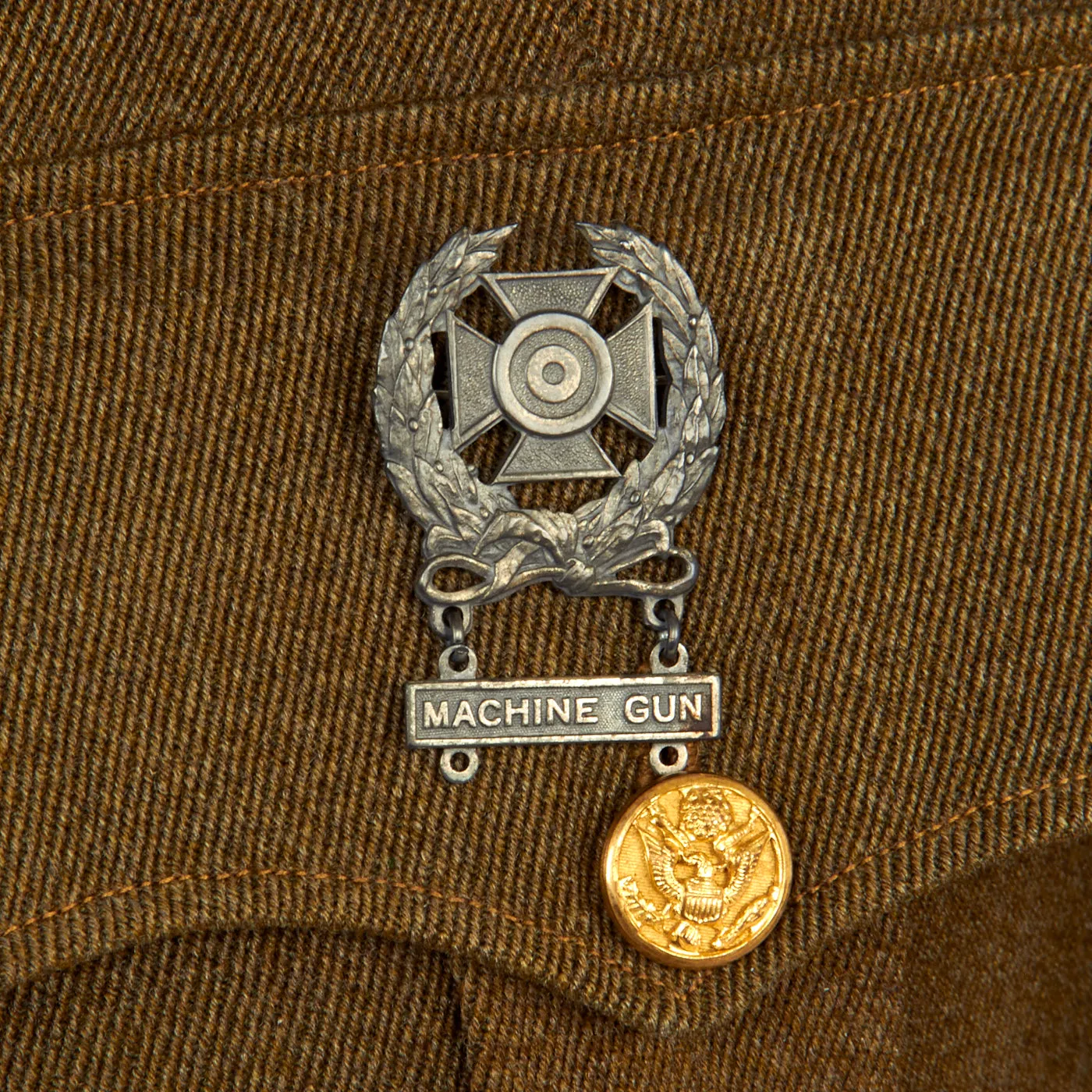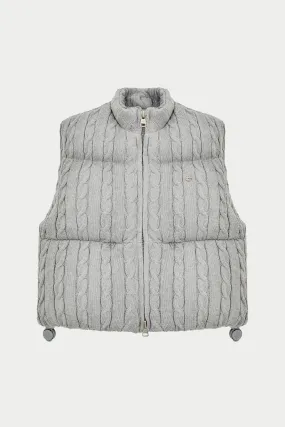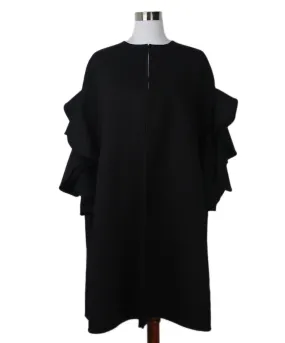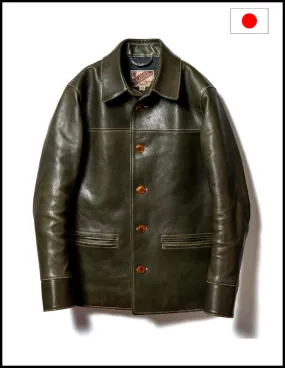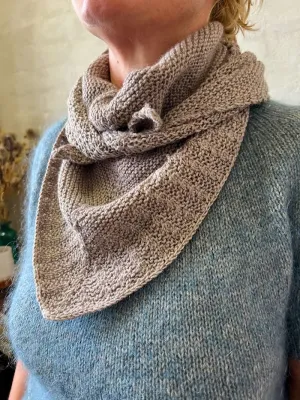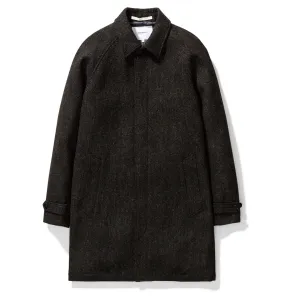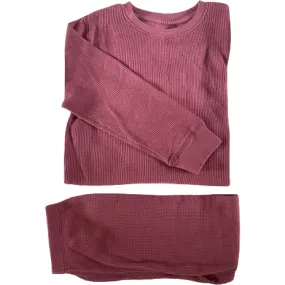Original Item: Only One Available. This is a lovely example on an Inter-War period 1926 Pattern US Army winter service uniform coat. The coat is named on the inside pocket label to a Captain J.M. Shelton, with a date of August 1924. We believe this date to be when he enlisted, as this style coat wasn’t adopted until 1926. The condition is phenomenal for the age and only has minor wear and age toning present, truly a beautiful example!
The period between World War I and World War II was perhaps the quietest period in U.S. military history. After World War I, the Army was drastically reduced in strength, there were fewer deployments, and the Great Depression of 1929 ensured that money and resources were unavailable. From the early 1920s to the late 1930s there were only minor changes to the uniform, accouterments and small arms. To be sure improvements were designed and plans were made, but most were not implemented or produced until World War II began.
In December 1926, the look of both the summer and winter service coats was changed. The new coats were single breasted with four bright brass general service buttons, a roll collar and notched lapels. Bright brass collar discs continued to be worn with Distinctive Unit Insignia added to the face of the lapels as soon as regimental designs were approved. The winter coat could be worn with either the wool shirt or the khaki shirt along with a black four-fold service necktie.
The uniform appears to be in original configuration and well preserved. All four general service buttons are present on the front, as are all others. The top shoulders have wonderful Captain’s bars present with a beautiful patina of age to them. The notched lapels have the standard US designators as well as crossed sabers for Cavalry. The left shoulder has an incredible hand stitched applied gold shield with a light blue 3 in the middle for the 3rd Cavalry Division.
This is an absolutely beautiful coat. We have not been able to locate any service record information for Captain Shelton, making for a wonderful research opportunity!
Comes more than ready for display.
Approximate Measurements:
Collar to shoulder: 9"
Shoulder to sleeve: 24”
Shoulder to shoulder: 15”
Chest width: 16”
Waist width: 14.5"
Hip width: 17”
Front length: 31.5"
The United States Army's 3rd Cavalry Division was created from the perceived need for additional cavalry units in the interwar period.
The 3rd Cavalry Division was largely a "paper" formation existing from 1927 to 1940. Its units never assembled in a single location or conducted large scale training. It was constituted in the Regular Army but most of the support elements were "Regular Army Inactive" (RAI) units manned with Organized Reserve personnel. The 3rd Cavalry Division never deployed overseas. The Division was disbanded on 10 October 1940.
The 3rd Cavalry Division was constituted in the Regular Army on 15 August 1927, allotted to the Fourth, Sixth, Seventh, and Eighth Corps Areas, and assigned to the Second Army. The division was reassigned to the General Headquarters Reserve (GHQR) as a result of the US Army reorganization of 1933. The 3rd Cavalry Division's designated mobilization station was Fort Des Moines, Iowa, where many of the division’s units were organized with Reserve officers as RAI units and where most of them conducted their annual summer training camps. The 3rd Cavalry Division consisted largely of RAI units though many of the units of the division were active during the period 1921–40. Unlike the 2nd Cavalry Division, the division’s active units were not concentrated in one or two areas, but were spread from coast to coast. The active elements of the division in the 1920s and 1930s consisted only of the cavalry regiments; the remainder of the units were to be activated from the RAI units in the Organized Reserve. Like the 2nd Cavalry Division, however, RAI units of the 3rd Cavalry Division were predominantly located in the Seventh Corps Area with most being initially concentrated in the Kansas City metropolitan area. These units conducted their summer training at Fort Riley, Kansas and were under the peacetime control of the HQ, 66th Cavalry Division for administrative and training purposes. In 1933, several of the division’s RAI units were transferred to the Third Corps Area, but by the late 1930s, most of the division’s RAI units were relocated to Des Moines, Iowa.




